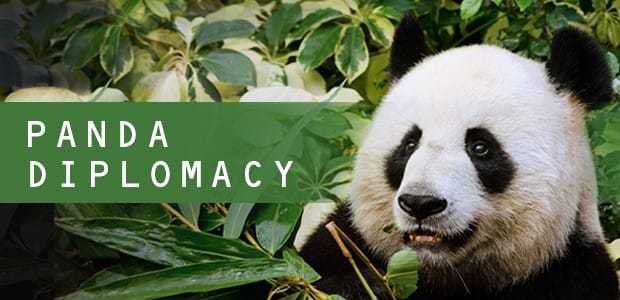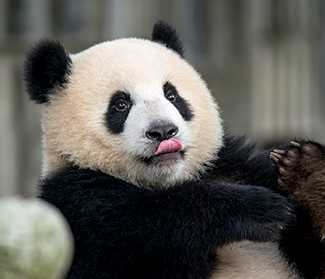
In the late 1950s, US relations with Communist China were virtually nonexistent. Trade had been tightly controlled since China’s intervention in North Korea in 1950, and, to deny Beijing any advantage from commercial or financial transactions, the Secretary of the Treasury issued strict regulations prohibiting the import of goods that originated in or had passed through Communist China. There were rarely any exceptions, even for pandas.
In 1958, one frustrated animal importer tried a different tactic. He took his case to the Director of Central Intelligence (DCI), Allen Dulles.
Heini Demmer, an Austrian animal dealer, and Frederik Zeehandelaar, a noted animal importer in New Jersey, wanted Dulles’s help in obtaining permission from the Treasury to bring into the US a giant panda.
Demmer had just bought “Chi Chi” (whose name meant naughty mischievous one) from the Beijing Zoo, and several zoos in the US were interested in giving her a home. The Bronx Zoo, wrote the New York Times, “was clinging to a hope that the State Department may concede that the admission [of Chi Chi] would not be a victory for international communism.” Both Treasury and the State Department, then led by Allen’s brother, John Foster Dulles, had rebuffed the “pleas for clemency.”
Did the two businessmen think Allen Dulles would be able to sway his hardline brother? The record clearly shows that the two men reached out to the DCI for help and that, for whatever reason, he obliged.
Dulles put his aides to work on the panda problem, including his legislative counsel, a senior clandestine service officer who supported the DCI at the Operations Coordination Board, and the director’s assistant, who seemed to have borne the bulk of the tasking. The director’s assistant was soon nicknamed by his colleagues, ” the Vice President of Pandas.”
On January 10, 1958 Dulles received a note with Treasury’s decision: Allowing Chi Chi to enter the US would “constitute a serious departure from the basic policies” laid out in the regulations. Moreover, a giant panda would receive a great deal of publicity and that would lead to a need for Treasury to make a public explanation of the reasons for granting an exception. Unless the DCI had other suggestions, the note stated, the matter was closed.

Treasury’s resistance was not entirely unwarranted. Since the first live panda had been brought to the US in 1936 (registered aboard a ship as a puppy), the giant panda had captured the popular imagination—and become a potent political symbol.
Madame Chiang Kai-shek, wife of the leader of the Republic of China, had dispatched a pair of the bears to the Bronx Zoo in 1941; arriving just after the Japanese attack on Pearl Harbor, they became a symbol of a crucial wartime alliance.
During the decades after the Communist Chinese took control in 1949, as one historian of panda diplomacy notes, they would “benefit from the careful deployment of captive pandas for explicitly political purposes.”
The media manifested little patience with the political symbolism of pandas and seemed to have been unaware of Dulles’s behind-the-scenes representations on Chi Chi’s behalf. They were aware of the rejection, however, and their commentary was harsh.
The clown of the animal world has been refused entry because it is a resident of Communist China.
May 7, 1958
The New York Times
“The clown of the animal world has been refused entry because it is a resident of Communist China,” reported the New York Times. “The state department, despite pleas from leading zoos for clemency, argues that to admit the young panda — darling of animal lovers and toymakers — would violate the law forbidding trade with Communist China.”
According to the Washington Post, “The majesty of the United States has been employed to exclude a giant panda from this country…The zoos which have been bidding for him must be content merely to describe to their visitors what a panda is—or to pretend, in the fashion of the State Department attitude toward the Communist government in Peking, that he simply doesn’t exist. Perhaps this sort of panda-ing to rigidity is what is needed to demonstrate the inanity of a policy based on fiction.”
Spurned by Washington, Chi Chi made a triumphal tour of Europe, visiting Frankfurt, Copenhagen, and Berlin before finally winding up at the London Zoo. With the brief exception of a failed conjugal visit to Moscow, she lived there until July 1972.
Just a few months before her death, two pandas—Hsing Hsing and Ling Ling—arrived in Washington, a gift from China after President Richard Nixon’s visit to Beijing that year. Ironically, they entered the US through Dulles Airport, named after the same John Foster Dulles whose hatred of “Red China” had helped block Chi Chi’s arrival.

